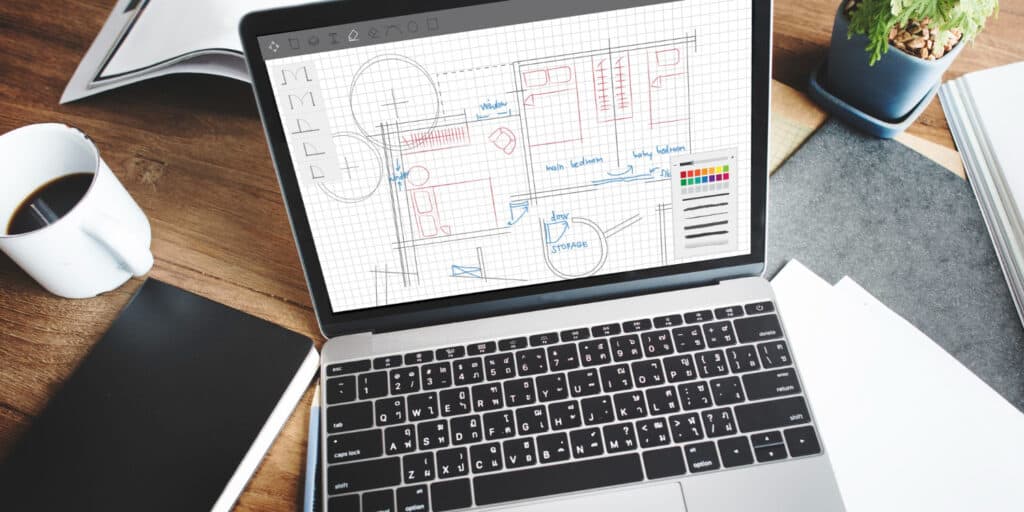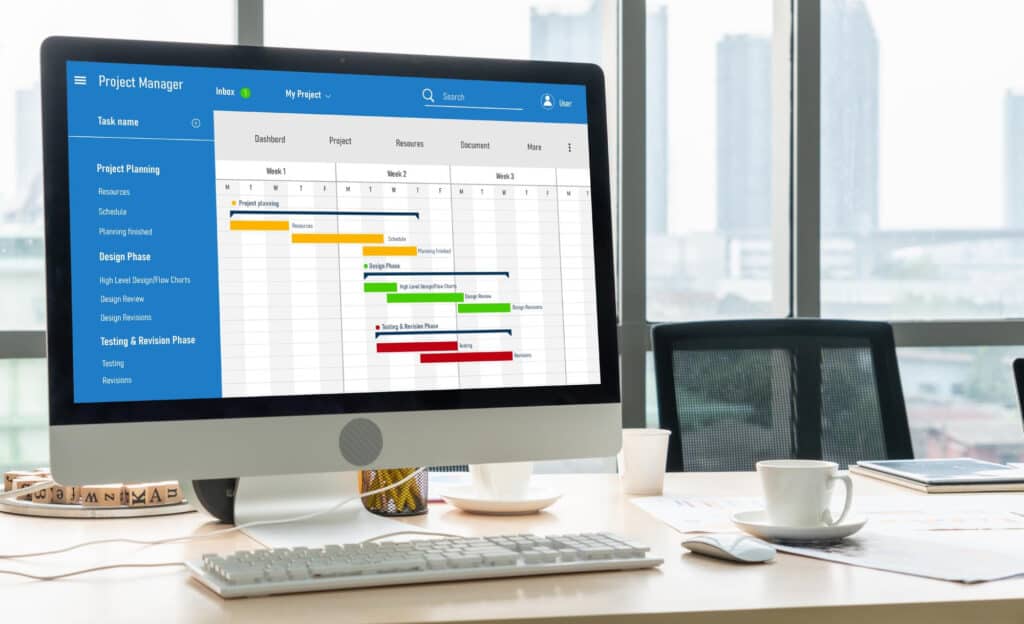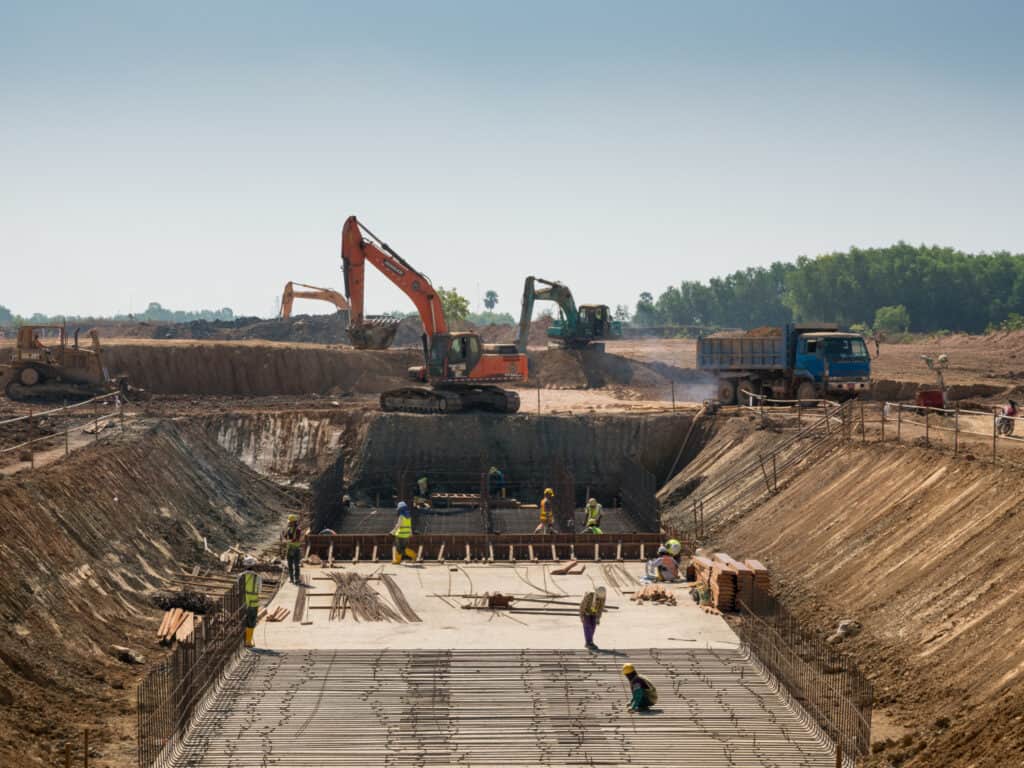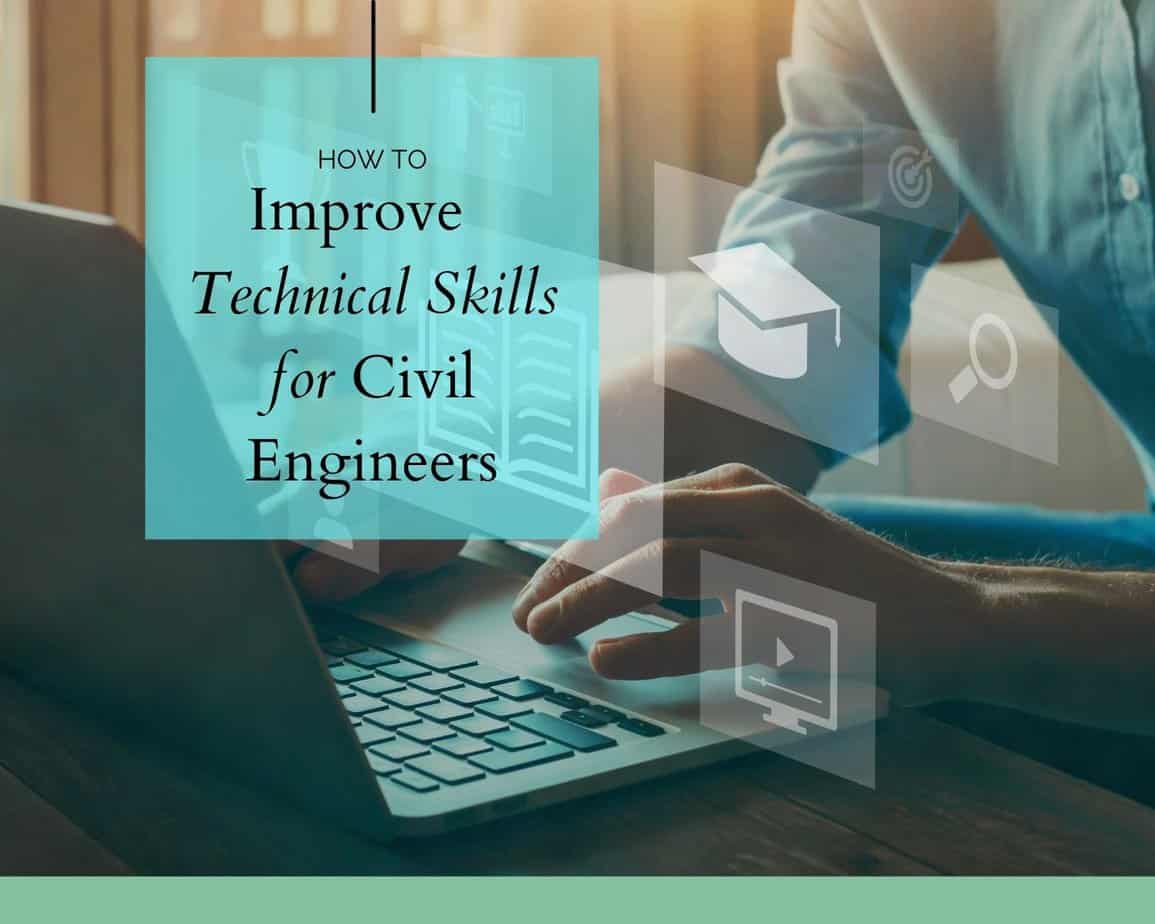Technical skill is an important part of an engineer’s job. Technical skills include the ability to use a computer and software, the ability to analyze problems and solve them, the ability to write clearly, and so on.
Civil engineers design, build and maintain infrastructures, such as roads, bridges, airports, and water systems. They also work with other engineers to design and build structures, such as buildings and bridges.
Civil engineers need good technical skills to design and build infrastructure. They need to be able to use math and science to figure out how to build things safely and efficiently. They also need to be able to communicate with other engineers and the public.
There are many ways to improve the technical skills of a civil engineer. Some ways include taking classes and workshops, practicing on projects, and using software that helps with engineering calculations.
Let’s dig on deeper and learn the importance of technical skills for civil engineers and ways to improve them.
Types of Engineering Technical Skills
Before you start learning to improve your technical skills, you should be aware of the fact that there are three types of technical skills: general engineering skills, specialty-specific engineering skills and professional ethics. These three technical skills are closely linked and depend on each other.
Technical skills are important for a civil engineer because they enable him to do his job properly and efficiently. A civil engineer needs to use computers in order to draw up plans and calculate loads. He also needs to use a computer for designing, analyzing and controlling the construction of large-scale projects.
- General Engineering Skills
The term “general engineering skill” can refer to a variety of different abilities and skillsets. However, in general, a general engineering skill is a proficiency in engineering that allows you to work on a wide range of projects and tasks. This could include anything from designing and building machines and structures to troubleshooting and repairing existing systems.
Many different types of skills can be considered general engineering skills. Some of the most common include:
- Mechanical engineering skills: These skills involve the design and construction of machines, including both hardware and software. Mechanical engineering skills can be used to create everything from aircraft to automobiles, as well as medical equipment, robots, and other types of machinery.
- Electrical engineering skills: Electrical engineering skills involve the design and construction of electrical systems, including power generation and distribution, as well as the use of electronics in machines and systems. Electrical engineering skills are used in a wide range of industries, from aerospace to telecommunications.
- Civil engineering skills: Civil engineering skills involve the design and construction of public works projects, including roads, bridges, and buildings. Civil engineering skills are used in a variety of industries, including construction, transportation, and utilities.
- Chemical engineering skills: Chemical engineering skills involve the design and construction of chemical systems, including those used in manufacturing and processing. Chemical engineering skills are used in a variety of industries, including pharmaceuticals, biotechnology, and petrochemicals.
- Industrial engineering skills: Industrial engineering skills involve the design and optimization of systems and processes, including the use of statistics and modeling to improve efficiency. Industrial engineering skills are used in a variety of industries, including manufacturing, transportation, and logistics.
- Computer engineering skills: Computer engineering skills involve the design and construction of computer systems, including hardware, software, and networks. Computer engineering skills are used in a variety of industries, including information technology, telecommunications, and defense.
- Project management skills: Project management skills involve the planning and coordination of projects, including the allocation of resources and the management of risks. Project management skills are used in a variety of industries, including construction, engineering, and information technology.
Each of these skills can be used in a variety of industries, making general engineering skills a versatile set of abilities. In addition, many engineering skills can be used together to create even more powerful combinations. For example, electrical engineering skills can be used in conjunction with computer engineering skills to create systems with embedded electronics.
The best way to develop general engineering skills is to gain experience in a variety of different engineering fields. This can be done by completing an engineering degree or by working in a variety of engineering roles. Engineering roles can be found in a wide range of industries, so there is sure to be one that matches your interests and skills.
- Specialty-specific Engineering Skills
Specialty-specific engineering skills are the skills that are required for a particular engineering specialty. For example, civil engineers need to have strong math skills and be able to understand complex engineering concepts. Mechanical engineers need to be able to design and build complex machines, and electrical engineers need to be able to design and build electrical systems.
Most engineering specialties require a combination of technical skills and problem-solving skills. Engineers need to be able to understand the problem they are trying to solve, and then they need to have the technical skills to be able to solve the problem.
Specialty-specific engineering skills can be learned in school, through on-the-job training, or through self-study. Many engineering specialties also have professional societies that offer training and certification programs.
What are some of the most common specialty-specific engineering skills?
Some of the most common specialty-specific engineering skills include:
-Civil engineering: math skills, understanding complex engineering concepts
-Mechanical engineering: design and build complex machines
-Electrical engineering: design and build electrical systems
-Chemical engineering: understanding complex chemical processes
-Software engineering: understanding complex software systems
- Professional Ethics
Engineering professional ethics is a code of conduct that engineers are expected to adhere to in order to maintain a high level of integrity in the engineering profession. Professional ethics is a system of moral principles that guide the way an individual behaves in their professional life.
There are a number of ethical principles that engineers are expected to adhere to, including honesty, integrity, responsibility, and respect. These principles are designed to protect both the engineer and the public.
Engineers are responsible for the safety of the public and must ensure that their designs are safe and meet all applicable safety standards. They must also ensure that their work is done in accordance with applicable laws and regulations.
Engineers must also respect the rights of others, including property rights and the privacy of others. They must also ensure that their work does not cause any harm to the environment.
Engineers must always act with honesty and integrity, and must not engage in any unethical or illegal activities. They must also be willing to report any unethical or illegal activities that they become aware of.
If an engineer violates any of these principles, they can face disciplinary action from their professional association. This can include anything from a warning or reprimand to being suspended or expelled from the association.
Professional ethics is an important part of the engineering profession, and engineers must adhere to these principles in order to maintain the public’s trust.
What are some specific technical skills that civil engineers need?
There are a variety of specific skills that civil engineers need in order to be successful. In addition to strong math and physics skills, civil engineers should be well-rounded and familiar with a wide range of applications and tools. Some key technical skills include:
- Communication and teamwork: Civil engineering is an interdisciplinary field, so excellent communication and teamwork skills are essential.
- Technical skills: Graduates of civil engineering programs need to have a strong foundation in mathematics, physics, and other technical subjects.
- AutoCAD: Civil engineers should be proficient in using AutoCAD for drafting 2D plans and 3D models.

- SketchUp: SketchUp is a popular 3D modeling software used by many architects and civil engineers.
- Project management software: Civil engineers should be familiar with project management software such as Microsoft Project or Primavera P6.

- Structural analysis/design: Civil engineers should be proficient in using structural analysis and design tools such as STAAD Pro or ETABS
What technology do civil engineers need to be familiar with?
Civil engineering is a field of engineering that deals with the planning, design, construction, and maintenance of physical and naturally built environments, such as roads, bridges, canals, dams, and buildings. In order to become a civil engineer, you will need to be familiar with a variety of technology.
When it comes to technology, civil engineers need to be familiar with a variety of software and tools. In order to properly communicate with their team members, they should be skilled in Microsoft Office Suite.
One of the most important pieces of technology for civil engineers is CAD software. This software is used to create designs and plans for projects. It is important for civil engineers to be proficient in CAD software, as it allows them to create accurate and detailed designs.
Civil engineers must also be familiar with Geographic Information Systems (GIS), which allow them to map and analyze spatial data.

Another important piece of technology for civil engineers is surveying equipment. This equipment is used to take measurements and collect data for projects. Civil engineers use this data to create accurate plans and designs.

Additionally, they need to be familiar with engineering simulation software, which allows them to test the structural integrity of projects before construction.
Civil engineers must be familiar with construction management software, which allows them to track construction progress and budget.

Finally, civil engineers need to be familiar with construction equipment. This equipment is used to build and repair physical structures. Civil engineers use this equipment to complete projects safely and efficiently.
What are the benefits of improving technical skills?
Technical skills are essential for any individual looking to improve their career prospects. By learning new technical skills, you can increase your value as an employee and make yourself more marketable to potential employers. Technical skills can also help you to be more productive and efficient in your work, and can make you better equipped to handle challenging projects.
Below are some of the key benefits of improving your technical skills:
- Increased employability
One of the most obvious benefits of improving your technical skills is that it will make you more employable. Technical skills are in high demand in today’s job market, and employers are always on the lookout for talented individuals who can bring new skills to the team. By learning new technical skills, you can make yourself more attractive to potential employers and increase your chances of landing your dream job.
- Increased productivity
Technical skills can also help you to be more productive in your work. By learning how to use new software or tools, you can streamline your workflow and get tasks done more quickly and efficiently. This can be especially beneficial if you are working on a challenging project or if you have a tight deadline.
- Increased competitiveness
In a competitive job market, it is essential to stay ahead of the curve and keep up with the latest trends. By improving your technical skills, you can make yourself more competitive and better equipped to handle challenging projects. Technical skills are in high demand, and by learning new skills, you can set yourself apart from the competition and boost your career prospects.
- Greater flexibility
In today’s fast-paced workplace, it is essential to be able to adapt to change quickly. By improving your technical skills, you can give yourself the flexibility to take on new challenges and switch gears quickly when needed. This can be especially beneficial if you are working in a fast-paced environment or if you are looking to switch careers.
- Increased confidence
When you are confident in your abilities, it shows. By improving your technical skills, you can gain the confidence needed to take on new challenges and excel in your career. Technical skills can be intimidating for some people, but by learning new skills and putting them into practice, you can boost your confidence and be more successful in your work.
How can civil engineers assess their current technical skills?
Civil engineers are constantly searching for ways to improve their skills and stay current in their field. One way to assess your skills is to ask yourself the following questions:
What are my current areas of strength and weakness?
What technical skills do I need to develop?
What resources are available to me to improve my skills?
Once you have an idea of your current skills and areas for development, you can start taking steps to improve your skills. One way to improve your skills is to attend training courses and workshops. There are also many online resources available, such as tutorials, e-books, and webinars. You can also network with other professionals in your field to get advice and learn from their experiences.
It’s also important to keep your skills sharp by practicing them regularly. One way to do this is to complete civil engineering challenges and puzzles. These challenges can help you test your knowledge and problem-solving skills.
By assessing your current skills and taking steps to improve them, you can stay current and competitive in the civil engineering field.
What are some tips for civil engineers who want to improve their technical skills?
Civil engineering is a complex and challenging field that requires a high level of technical skill. Here are a few tips for civil engineers who want to improve their technical skills.
- Stay current with the latest technology.
The field of civil engineering is constantly evolving, and it is important to stay up-to-date with the latest technology. Subscribe to journals and attend conferences to keep abreast of the latest trends.
- Practice your problem-solving skills.
Civil engineering problems can be complex and challenging. It is important to be able to solve problems efficiently and effectively. Practice your problem-solving skills by working through practice problems, and seeking feedback from others.
- Stay organized.
Civil engineering projects can be complex and time-consuming. It is important to stay organized and keep track of all the various aspects of the project. Use tools such as calendars, to-do lists, and project management software to help you stay organized.
- Build a strong network.
One of the best ways to improve your technical skills is to build a strong network of professionals. Seek out mentors and colleagues who can help you learn and grow in your field.
- Practice patience and perseverance.
Civil engineering is a challenging field and it can take time to master the necessary skills. Be patient and persevere through the challenging moments. With practice and dedication, you will improve your technical skills.
What are some effective ways to use technology to improve hard skills?
There are a number of ways that technology can be used to improve technical skills. One way is to use online resources to improve understanding of technical concepts. For example, there are a number of websites that offer free tutorials on topics such as coding and computer programming.
Another way to use technology to improve technical skills is to use online tools to practice and improve technical skills. For example, there are a number of online tools that allow you to practise coding or programming. These tools can be a great way to improve your skills, as they allow you to practise in a safe and controlled environment.
Finally, another way to use technology to improve technical skills is to use online resources to find mentors or experts in the field. For example, there are a number of websites that allow you to find experts in specific fields, such as coding or programming. This can be a great way to get help and advice from experts in the field.
What are some common challenges civil engineers face when trying to improve their skills?
Civil engineers are constantly trying to improve their skills in order to stay ahead of the competition and meet the needs of their clients. However, they often face several challenges in doing so.
One challenge is that civil engineering is a constantly evolving field, and new technologies and methods are constantly being introduced. Civil engineers need to stay up to date on these new developments and be able to incorporate them into their work.
Another challenge is that civil engineering is a very complex field, and there are a lot of different areas of expertise that are required. Civil engineers need to be able to master all of these different areas in order to be successful.
A third challenge is that civil engineering is a very demanding field, and it can be difficult to find enough time to continue learning and developing new skills. Civil engineers often have to balance their work with their personal lives, and it can be difficult to find the time to focus on professional development.
Despite these challenges, civil engineers can still find ways to improve their skills. One way is to attend training courses and seminars, which can help them learn about new technologies and methods. Another way is to read industry journals and books, which can help them stay up to date on the latest developments. And finally, civil engineers can network with their colleagues and discuss best practices and new ideas. By doing these things, civil engineers can continue to develop their skills and stay ahead of the competition.
What are the best ways to learn new technical skills?
When it comes to civil engineering, learning new skills is always a top priority. But with so many different ways to learn, it can be tough to know which method is best for you. In this article, we will explore a few of the best ways to learn new civil engineering technical skills.
One of the best ways to learn new skills is to attend a training course. Training courses can be found through various organizations, such as the American Society of Civil Engineers (ASCE) or your state’s engineering society. Training courses offer a variety of topics, ranging from the basics of civil engineering to more advanced concepts. They are also a great way to meet other civil engineers and learn from their experiences.
Another great way to learn new skills is through online courses. Online courses can be found through various websites, such as Coursera and Udacity. These courses offer a variety of topics, ranging from the basics of civil engineering to more advanced concepts. They are also a great way to learn from the comfort of your own home.
Finally, one of the best ways to learn new skills is to attend a conference. Conferences offer a variety of topics, ranging from the basics of civil engineering to more advanced concepts. They are also a great way to meet other civil engineers and learn from their experiences.
Whatever route you decide to take, remember that continual learning and growth are essential for success as a civil engineer!
